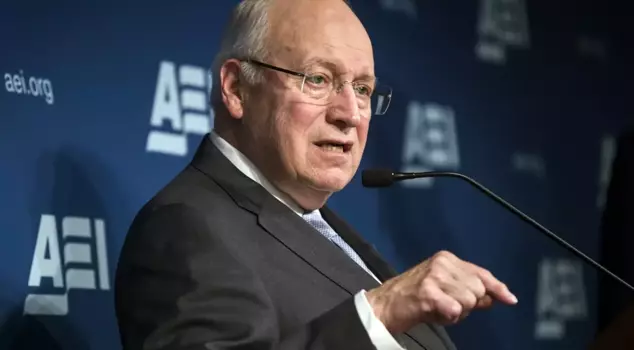
05.11.2025 04:48
In the United States, former Vice President Dick Cheney, who served during George W. Bush's administration, passed away at the age of 84 due to heart disease. Cheney was known as one of the architects of the aggressive policies following the September 11 attacks.
```html
It has been reported that Dick Cheney, who served as Vice President of the United States during the presidency of former President George W. Bush, has passed away.
According to CNN's report, Cheney's family made a statement.
FORMER VICE PRESIDENT CHENEY HAS PASSED AWAY
Former Vice President Dick Cheney, who was an aide to former President George W. Bush, has passed away. The statement indicated that Cheney, who had been battling heart disease for a long time, died at the age of 84.
ARCHITECT OF AGGRESSIVE POLICIES POST-9/11
The politician, born in 1941 in the state of Nebraska, USA, studied at Yale and the University of Wyoming. After his university education, he served as the special assistant to Donald Rumsfeld, the Director of the Office of Economic Opportunity at the time. Dick Cheney served as the CEO of Halliburton, an energy and defense company, from 1995 to 2000.
Cheney held the position of Secretary of Defense during the presidency of George H. W. Bush from 1989 to 1993.
Cheney drew attention particularly for his role during the Gulf War in 1991. During his time as Secretary of Defense, Cheney played an active role in shaping U.S. national security policy, standing out with the approach of "arming America's friends and controlling arms for potential enemies."
The politician served two terms as Vice President under Republican President George W. Bush from 2001 to 2009.
During the 9/11 attacks, Dick Cheney, who was serving as Vice President, was known as one of the key architects of the aggressive policies of that period. He was among the strongest advocates for the decision to invade Afghanistan after 9/11.
Cheney was noted as one of the main figures advocating for the invasion of Iraq in 2003 and the claims of weapons of mass destruction. During this process, he was described as one of the most influential figures in the U.S. invasion of Iraq. The invasion, which plunged the country into bloody chaos, led to the deaths of hundreds of thousands of civilians, although the exact numbers are not known, and caused many more to flee.
Cheney was considered to have had a significant behind-the-scenes influence on foreign policy and security decisions during the Bush administration. After suffering his first heart attack at the age of 37, he experienced four more heart attacks and underwent a heart transplant in 2012.
```